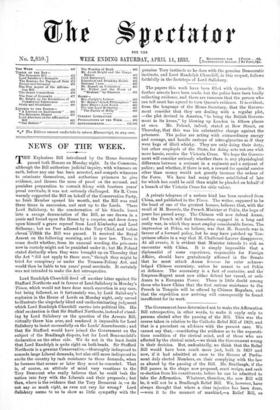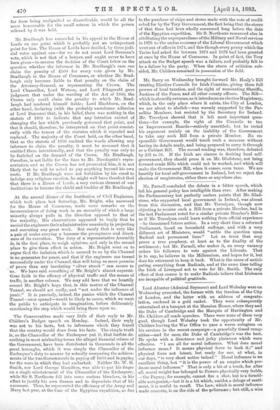The Government have determined not to make the Affirmation Bill
retrospective, in other words, to make it apply only to persons elected after the passing of the Bill. This was the course taken in relation to the Catholic Relief Bill of 1829, and that is a precedent on all-fours with the present case. We cannot say that,—considering the evidence as to the supersti- tious condition of the clerical mind, and of those who are affected by the clerical mind,—we think the Government wrong in their decision. But, undoubtedly, we think that the Relief Bill would have been much more just, both in 1829 and now, if it had admitted at once to the Houses of Parlia- ment duly elected Members, on their complying with the law as altered by the passing of the Bill. Mr. Bradlaugh, if the Bill passes in the shape now proposed, must resign, and seek re-election from his constituents, before he can be admitted to take the Affirmation. Whatever, therefore, the new Bill will be, it will not be a Bradlaugh Relief Bill. We, however, have always thought that where a clear injustice has been done, —were it to the meanest of mankind,—a Relief Bill, so far from being undignified or discreditable, would be all the more honourable for the small esteem in which the person relieved by it was held.



































